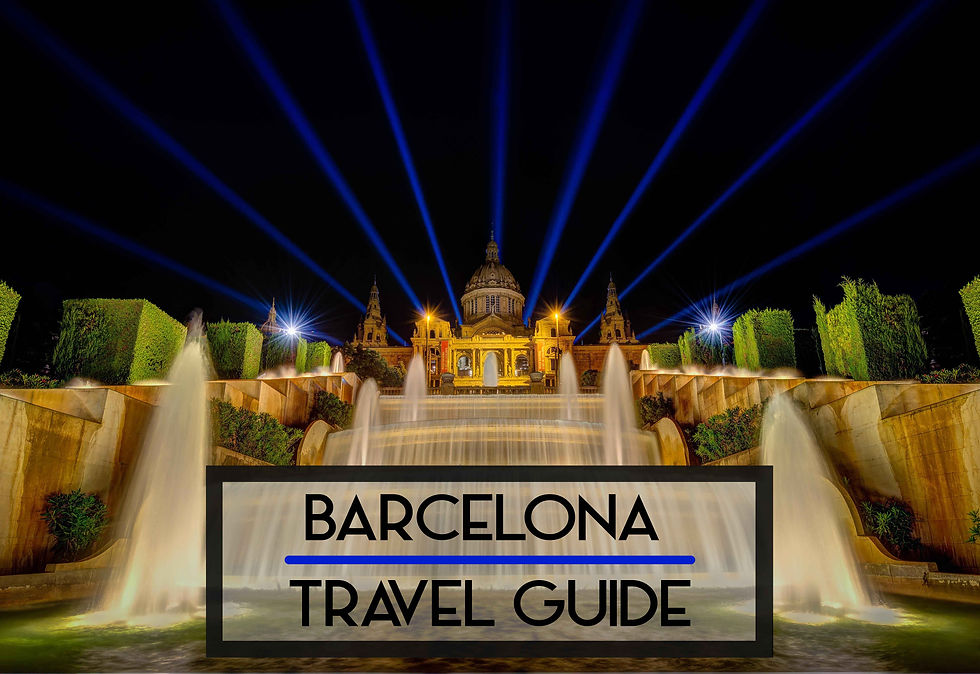Barcelona travel guide
- Andrew Caley

- Jun 11, 2016
- 2 min read

Barcelona is the second largest city in Spain and one of the best city break destinations in Europe, if not the world. With a Mediterranean climate, historic architecture and sandy coastline it is easy to see why it makes regular appearances in the top 10 cities in the world. A city of many contrasts from the ancient Gothic Quarter to the upmarket harbour or from the rustic street food of Mercado de La Boqueria to Michelin star cuisine, Barcelona has something for everyone and is without a doubt, one of my favourite cities. With many of the major sights easily accessible throughout the city via excellent transport links you can comfortably explore the city during a long weekend break whilst there still being plenty of sights to continually inspire a more long-term visitor.

What you need to know....
Accommodation - The cost of hostel rooms can vary dramatically depending on location and facilities in Barcelona, with an entry level price being around 12-15 EUR per night and 20-30 EUR getting you a more typical dorm room. A top-end hostel in the centre of the city can increase beyond 35 EUR per night and private rooms costing around 55 EUR for a double.
Food – With everything on offer from street food to world class restaurants you will always be able to find something within your food budget. Most restaurants will do a set Menú Del Día during lunch with prices ranging from 10-15 EUR which typically include three courses, a drink and bread. A typical meal at a good restaurant with alcoholic drinks will set you back anything from 25-40 EUR per person.
Transportation costs – The easiest way to get around the city is using the bus, train and metro network with a 3 to 5 day Tourist Pass, prices ranging from 20.50EUR for 2 days and 32.00EUR for 5 days. This pass gives you unlimited trips on the bus, train and metro network but does not include night buses and the two dedicated airport shuttle buses (routes A-1 and A-2).
Safety – Barcelona has a bit of a reputation for the “pickpocket capital of the world” which paints a very bad image of the overall safety of the city so you’ll be forgiven for thinking pickpockets will be waiting for you round every corner. I was carrying around my camera gear most of the time so I was very alert for any suspicious activity but after 24 hours I realised it is no worse than any other major city, I felt no more vulnerable than in any other major city. By applying common sense personal security behaviour you’re much less likely to be a victim of opportunism petty crime, some quick tips are:-
don’t put phone/wallets in an open back pocket,
don’t leave valuables on the table in bars or restaurants (even if you’re inside)
don’t travel alone especially at night or in unfamiliar neighbourhoods
dress like a native not a tourist (avoid brightly coloured shorts and sandals)
leave spare cash and cards in a safe at your hotel if you have one, in case the worst happens






Comments